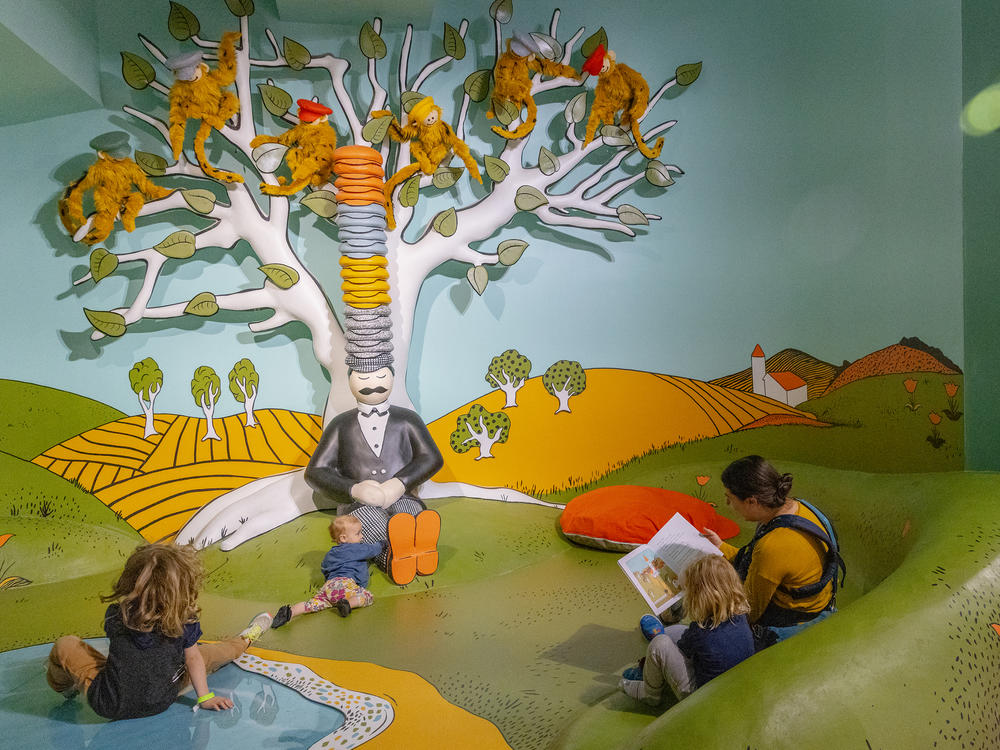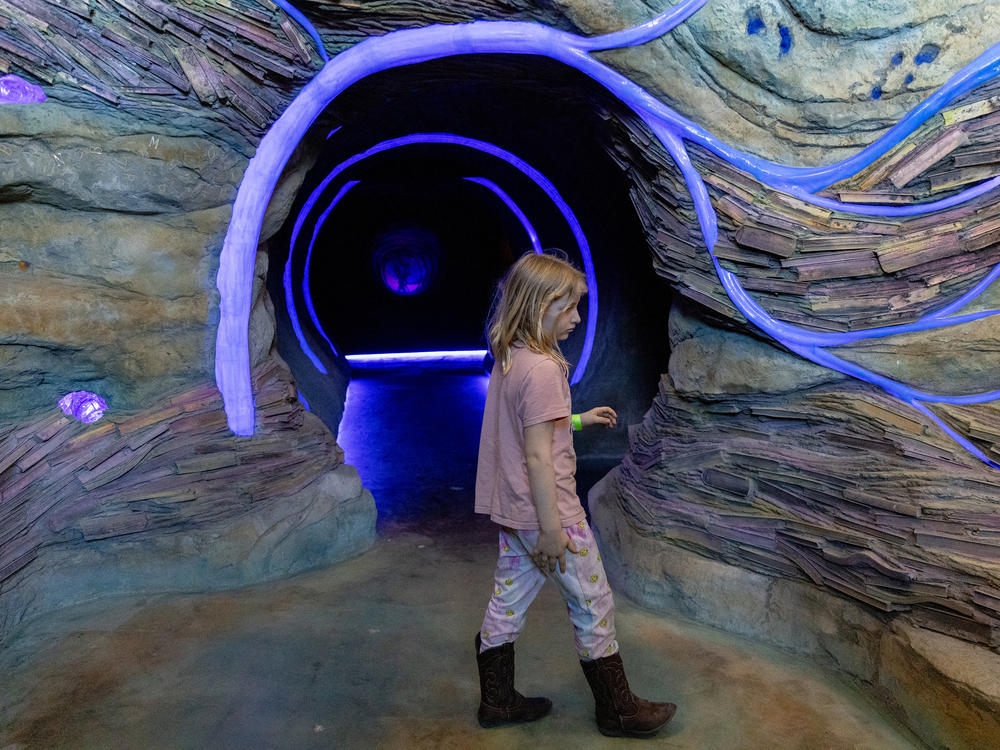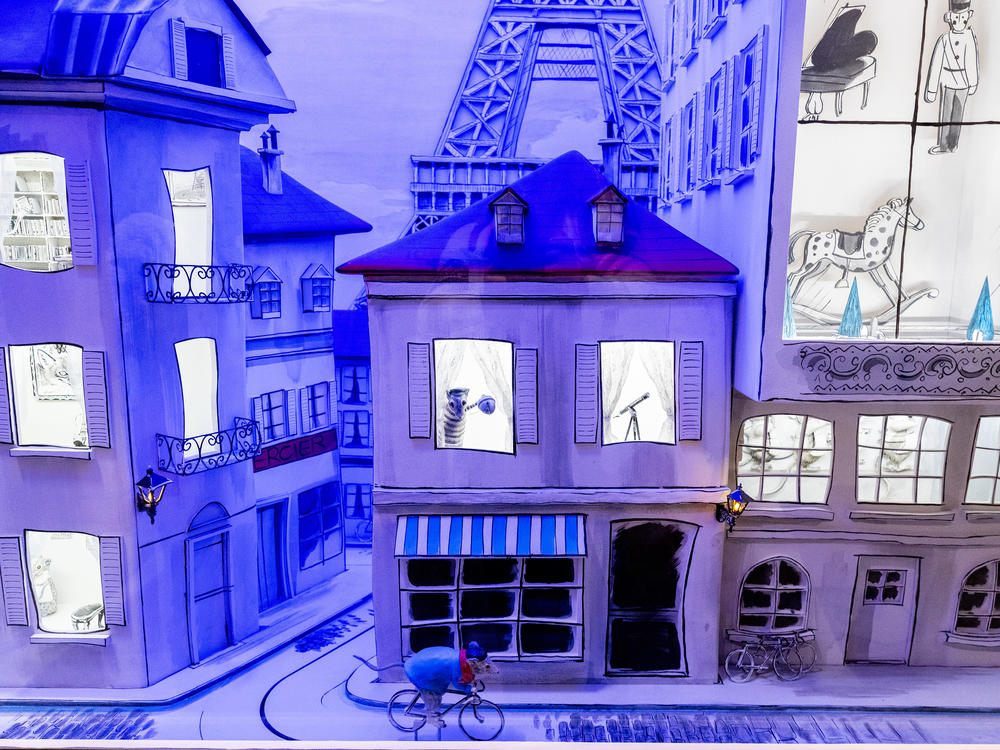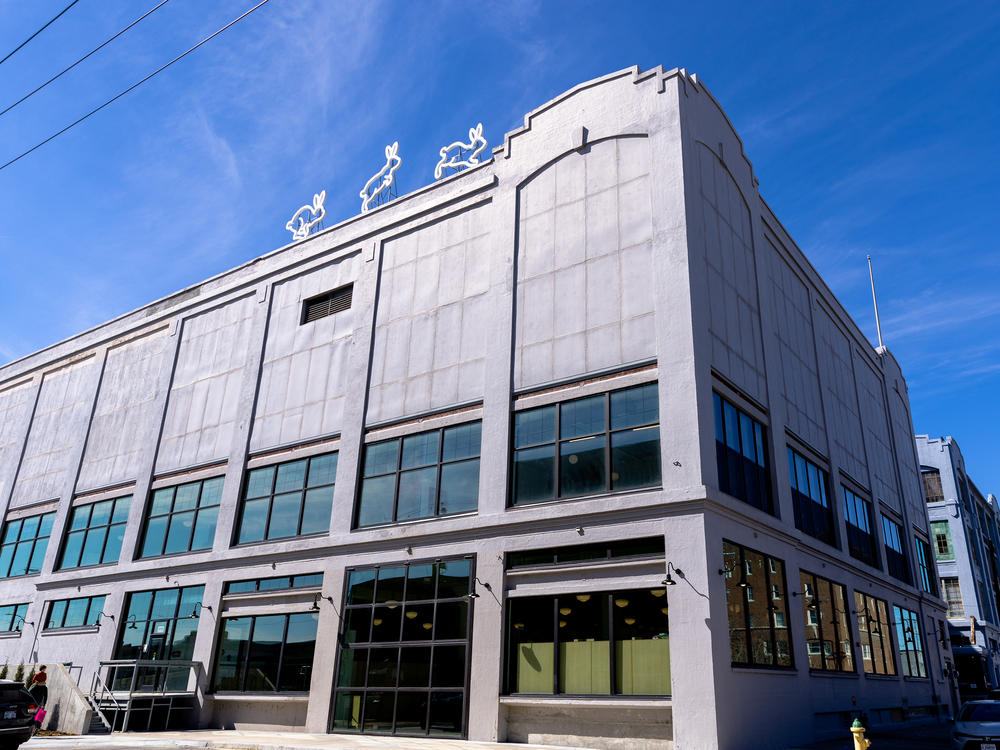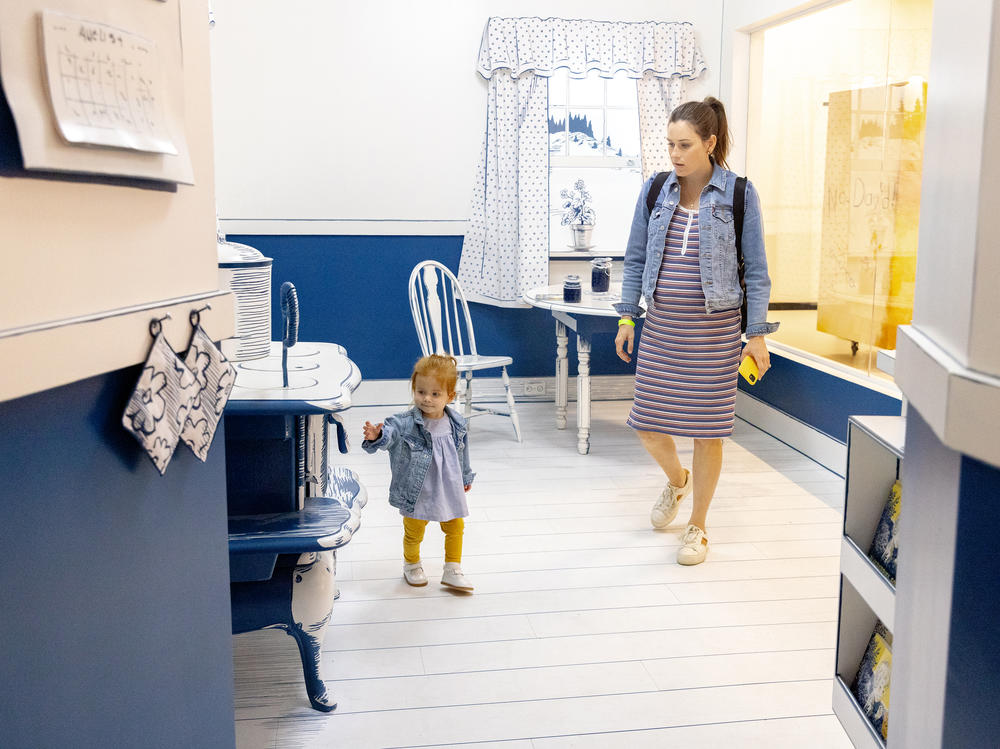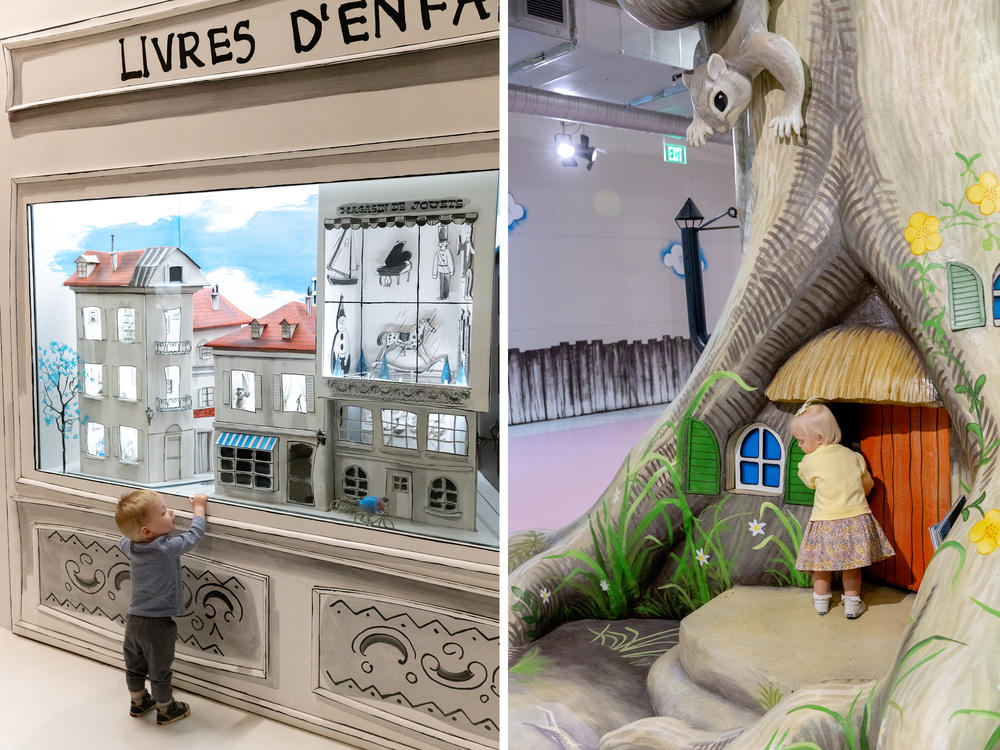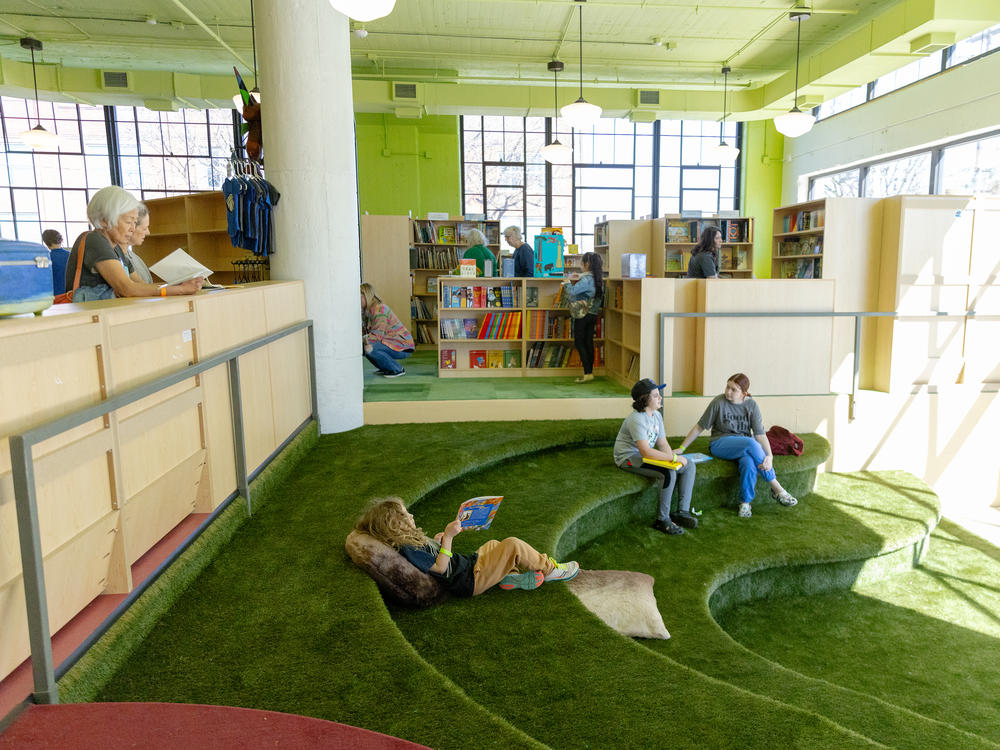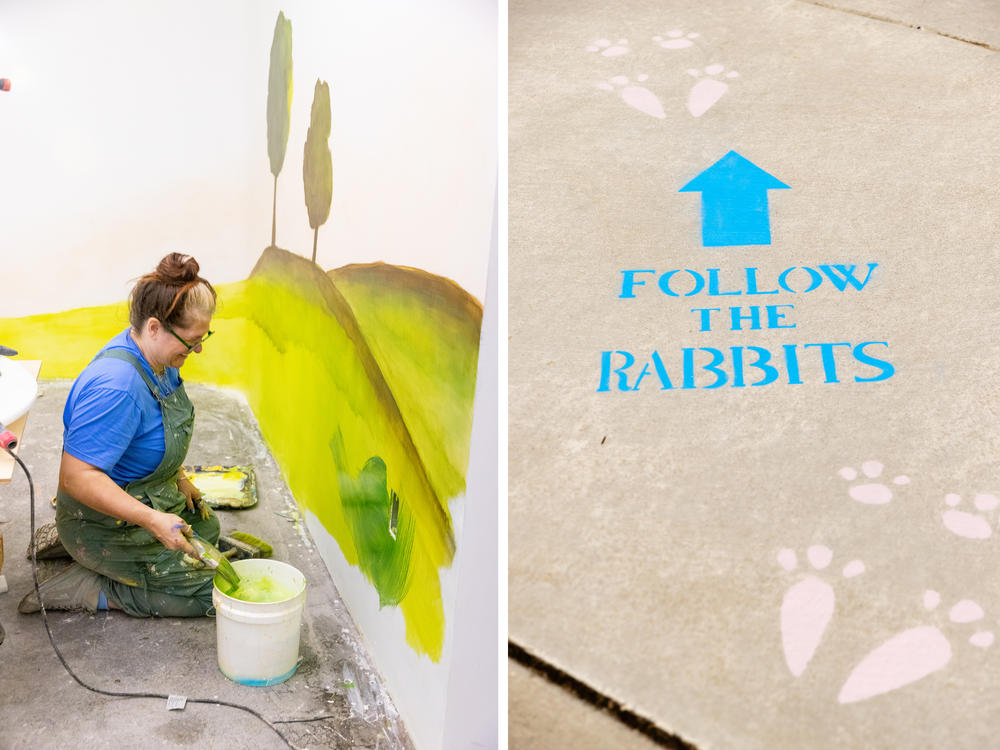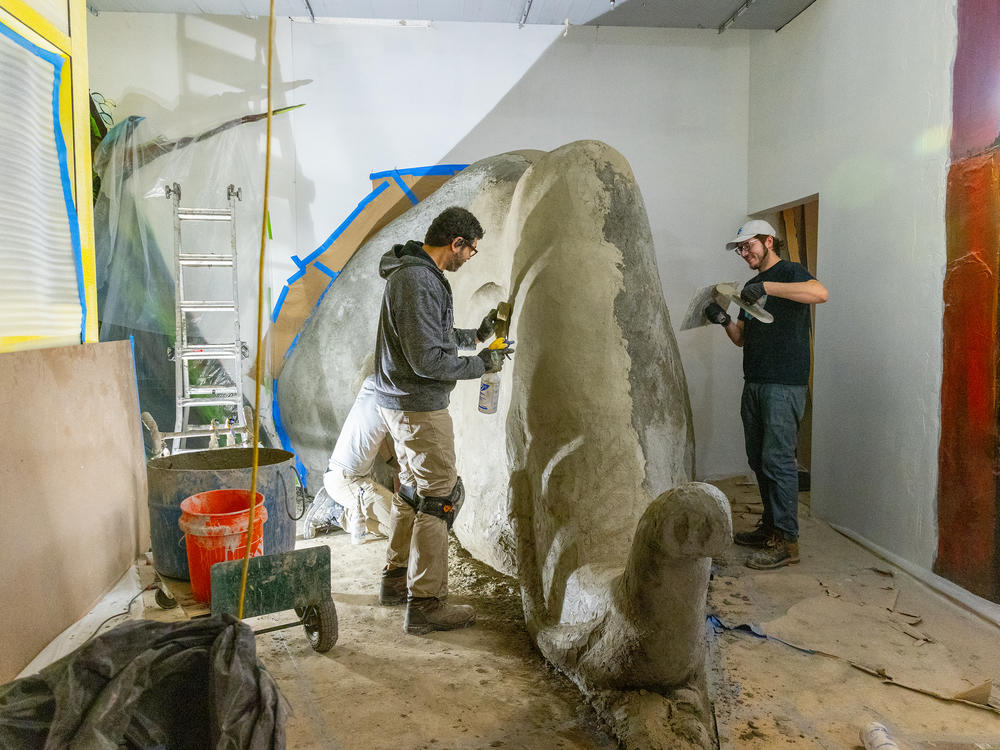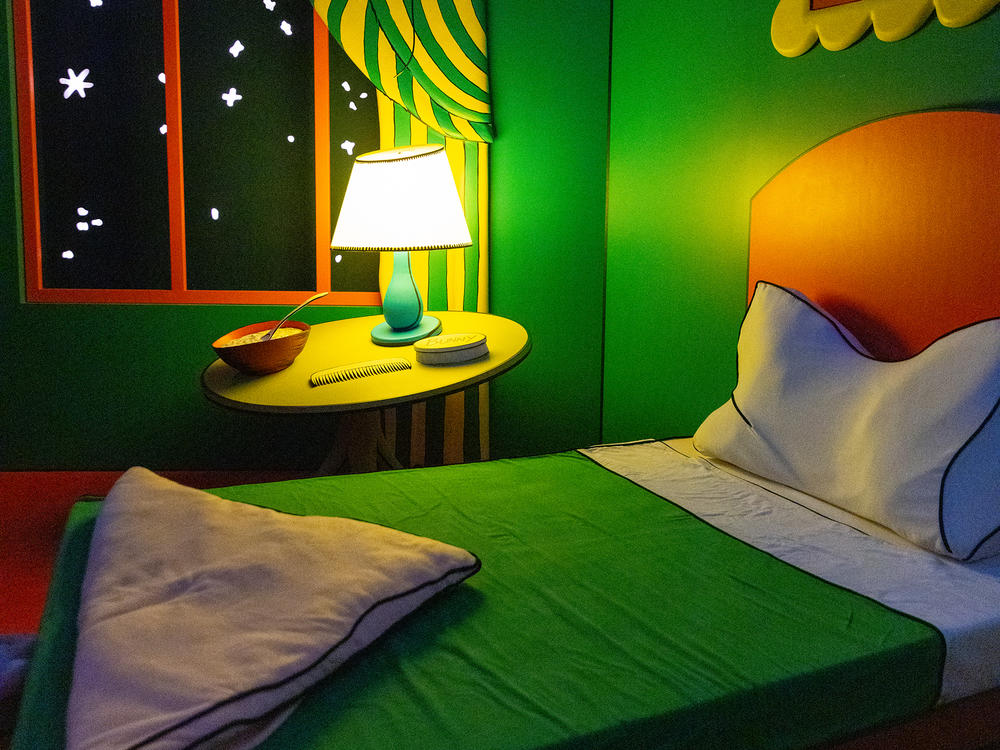Section Branding
Header Content
An immersive museum in Kansas City allows kids to explore their favorite books
Primary Content
In children's museums around the country, there are a lot of similar exhibits: the water exploration table, the kid-sized grocery store, the colorful jungle gym. But at The Rabbit hOle, an innovative and immersive museum dedicated to children's literature that opened on March 12 in North Kansas City, Mo., you won't find those things, which is exactly what co-founder Pete Cowdin intended.
"There's so much repetition, there's so much sameness, because most of the exhibits and most of the museums around the country for children are built by a handful of design companies," Cowdin says. "All those things are fine, but I do think that there's room for a different kind of experience."
Cowdin co-founded The Rabbit hOle with his wife, Deb Pettid, after years as booksellers and owners of a beloved Kansas City children's bookstore, the Reading Reptile. Now, the two are leading a revolutionary space in a 150,000-square-foot former warehouse, employing over 20 full-time artists and fabricators to bring children's books to life in interactive exhibits.
"We want to bring more critical culture to children's literature," Cowdin says, "not in a way to tear it down, but to call up the things that are actually taking away from the art of picture book making or the art of creating literature for young people."
The museum has the rights to over 70 works from the last century of children's literature, and works with the writers and illustrators or the estates of those books to bring them to life in unique and interactive exhibits. The museum features exhibits based on well-known children's classics like Where the Sidewalk Ends by Shel Silverstein, Curious George by H.A. and Margret Rey, Madeline by Ludwig Bemelmans, and, perhaps most popular, a recreation of the actual room from Goodnight Moon, the book written by Margaret Wise Brown and illustrated by Clement Hurd, where children and adults alike can explore the great green room.
But the museum also features lesser-known children's books, such as Perez and Martina, a story based on a Puerto Rican folk tale by Pura Belpré and illustrated by Carlos Sanchez, or Uptown, by the late John Steptoe, which brings a storefront from Harlem to life, created in collaboration with Steptoe's children.
"It's our mission to inspire the reading lives of children and adults," says Emily Hane, The Rabbit hOle's development and grant manager. "We want to be a place where kids can really discover the types of stories that they like that they've maybe never been exposed to before — whether it's because they've never seen a picture book with a kid who looks like them, or heard cultural stories that might resonate with their own household."
In the museum, patrons enter through a burrow and rabbit hole, and can play in the kitchen from Robert McCloskey's Blueberries for Sal, or take a nap against the tree from Esphyr Slobodkina's Caps for Sale. They can then pick up the book the exhibit inspired and enjoy the pages they've seen brought to life. Cowdin says kids are really the leaders in the space.
"We're not telling parents and children how to use the space and what they should [do], we're asking them to explore, and to find the books that are there and to find the exhibits and to experience exhibits and then to come together again around the book to read the book," says Cowdin. "The whole goal of the project is to bring young people — but also parents and educators — closer to the story."
The museum was inspired by places like the City Museum in St. Louis or art installation Meow Wolf, which make art-forward spaces that don't have a "right" or "wrong" way to interact with the exhibits.
"If all we did was make a beautiful place for children, it would be rare, honestly," says Cowdin. "We've done more than that and we'll continue to build on that."
On top of the book exhibits, The Rabbit hOle also features a bookstore and will soon host author talks and open a room for making crafts based on the museum's exhibits. The museum also has plans to open a resource library for educators and scholars, and will also have rotating exhibit spaces and a story and print lab, with room to host residencies for authors and illustrators.
"Whenever you're talking about children's culture, there is this [idea of], 'Oh, it's good enough. It's for kids, you know, just make it cheap. They don't really deserve anything beautiful'," says Hane. "And that's the exact opposite of how The Rabbit hOle feels. We believe that kids deserve something beautiful. Yeah, it's going to be durable. Yeah, we're going to be able to sterilize it and clean it and everything. But just because it's for children, doesn't mean it is a lesser art form."
Katie Currid is a photographer based in Kansas City.
